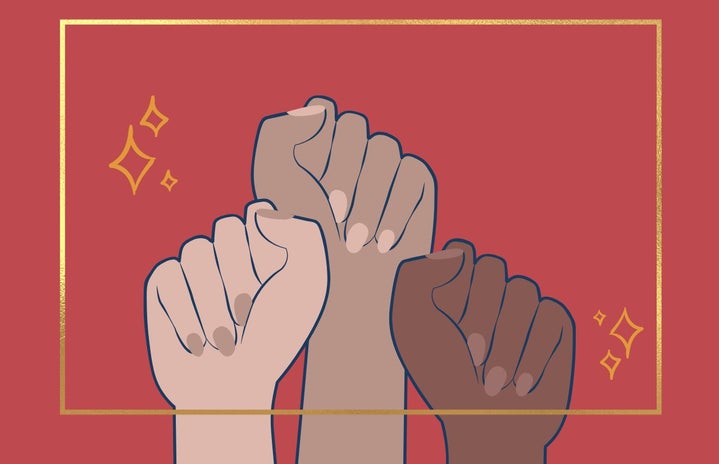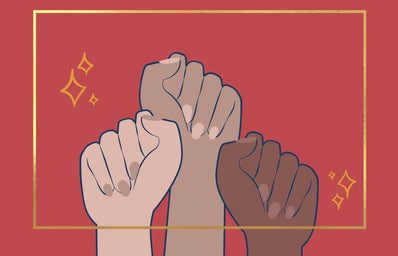In the realm of work, education, and various public spheres, the harsh reality remains that women often encounter discrimination and bias. Among the demographics that bear the brunt of such challenges are Muslim women, who are subjected to pervasive discrimination and subtle forms of prejudice in their daily lives.
Heba Fahs, a senior student in the Business program with a concentration in management at Montclair State University, is on the cusp of completing her undergraduate journey. Despite encountering numerous hurdles along the way, Heba remains resolute in her pursuit, aiming to inspire fellow young women through her unwavering determination. In this interview, Heba delves into the highs and lows of her experience as a Muslim woman, offering insights into the complexities of navigating her identity within the predominantly male-dominated realm of business.
Question: How do you navigate the intersectionality of being a Muslim woman in a Business Major, a largely male-dominated arena?
In grappling with the intersectionality of my identity as a woman of Moroccan heritage, I have often found myself contending with deep-seated misogynistic attitudes that seep into various aspects of my life—from my clothing to my tastes in music and even subtle expressions like my piercings. The need to tailor my appearance, occasionally removing specific adornments like nose and ear piercings during visits to Morocco to preempt unwelcome remarks, has fostered a resilience within me, fortifying my resolve to navigate the male-dominated landscape of the Business program at Montclair State University. Acknowledging the imperative to exert double the effort to establish my merit as a Muslim woman, a challenge that has been a recurring theme throughout my life as a first-generation student contending with heritage-related obstacles, I am heartened by the evolving landscape where an increasing number of women from diverse backgrounds are making notable inroads and flourishing in the realm of business.
Question: Do you have a Muslim woman in your life who serves as an inspiration to you?
Yes, my mother. She stands as an exemplar of strength and support in my life. Having acclimated to life in America, she comprehends the stark differences in experiences between her journey as a Muslim woman and mine, navigating the multifaceted cultural tapestry of American society. Her unwavering fortitude and independence serve as a beacon of inspiration to me; she is not only my strongest ally but also my closest confidante. While our mother-daughter bond may witness moments of divergence, our steadfast mutual support and profound love underscore the depth of our connection. With a Bachelor’s in Microbiology from Hunter University and a current role as a pathologist at an NYU hospital, my mother’s trajectory, marked by relentless dedication from humble beginnings at a cleaning company, embodies the essence of unwavering resolve in ensuring a secure life for me. Despite the setbacks she encountered, including the need to restart her educational journey upon migrating to the United States, her unwavering commitment to providing me with opportunities she envisioned for my future underscores the limitless potential of education. Moreover, her resilience in navigating personal challenges, such as her decision to part ways with my biological father and subsequently welcoming my stepfather into our lives (whom I respect and consider to be my father) and converting from Catholicism to Islam resonates as a testament to her unwavering standards and a poignant reminder of my inherent worth, instilling in me the imperative to demand respect and uphold my value when it comes to relationships.
Question: Could you share personal experiences where your identity as a Muslim woman has influenced your interactions within educational and workplace settings?
Reflecting on my encounters within educational and workplace environments, I have discerned a tangible bias towards individuals of Christian descent over those of Muslim origin. The disparity in treatment, particularly evident during major holidays where the observance of Eid does not warrant time off compared to the recognition afforded to holidays like Christmas and Easter, underscores the systemic inequities faced by Muslims in securing equitable accommodations. Instances, where my commitment to fasting during Ramadan was dismissed as inconsequential compared to the deference accorded to individuals observing Christian holy days, have served as poignant reminders of the prevailing biases embedded within societal structures. Moreover, the distressing encounter with a supervisor at a former workplace who used harmful stereotypes by insinuating acceptance of abuse within Muslim communities stands as a stark illustration of the pervasive misconceptions that continue to perpetuate discrimination. Despite such discriminatory attitudes, I have embraced a stance of resilience and resolve, utilizing these encounters as motivational fuel to defy stereotypes and transcend preconceived notions.
Question: In what ways do you think educational institutions and workplaces can better support the needs of Muslim women?
As I reflect on how educational institutions and workplaces can enhance support for Muslim women, I am compelled to underscore the significance of providing dedicated spaces for prayer, a fundamental aspect of our faith. Access to safe and tranquil environments where we can nurture our spiritual growth, especially during sacred occasions like Ramadan, is pivotal for fostering a sense of belonging and facilitatilng the manifestation of religious obligations. Regrettably, the perception of such accommodations as undue privileges often relegates us to walking on eggshells to avoid discomforting others – a dynamic exacerbated by the enduring stereotypes perpetuated against Muslims, exacerbated by the aftermath of September 11, 2001. The prevalent misconceptions and biases that cast Muslims in a negative light, associating us with violent extremism and terrorist groups, stand as a stark reminder of the need to challenge the prevailing narratives, underscoring the inherent contradictions in the societal perceptions of Islam.
Question: Can you speak to the importance of mentorship for Muslim women and how these relationships have aided you in navigating challenges and fostering success in your career?
Mentorship emerges as a cornerstone for advancing Muslim women, particularly as we witness a gradual surge in representation across various sectors, including Business, Medicine, Law, and other demanding professions. The imperative of sustaining this representation resonates deeply, inspiring countless Muslim women to forge ahead in their respective paths despite the vitriol directed towards them. The transformative power of mentorship lies in its ability to instill a sense of purpose and resilience, equipping us with the tools and guidance needed to combat adversity and chart a course toward success. Encouraged by the evolving landscape that embraces diversity and inclusivity, I am heartened to witness the burgeoning empowerment of Muslim women in this generation. I am privileged to play a part in this transformative journey.
Heba’s remarkable resilience and unwavering commitment to challenging stereotypes are a powerful testament to her character and determination. Her story is a source of inspiration and a beacon of hope for Muslim women navigating the complexities of the business world. Heba’s drive and positive energy exemplify the transformative power of perseverance and passion as we continue to advocate for inclusivity and representation. With her unwavering spirit and dedication, Heba’s journey in the business field is destined for success, paving the way for more extraordinary achievements and meaningful impact.


